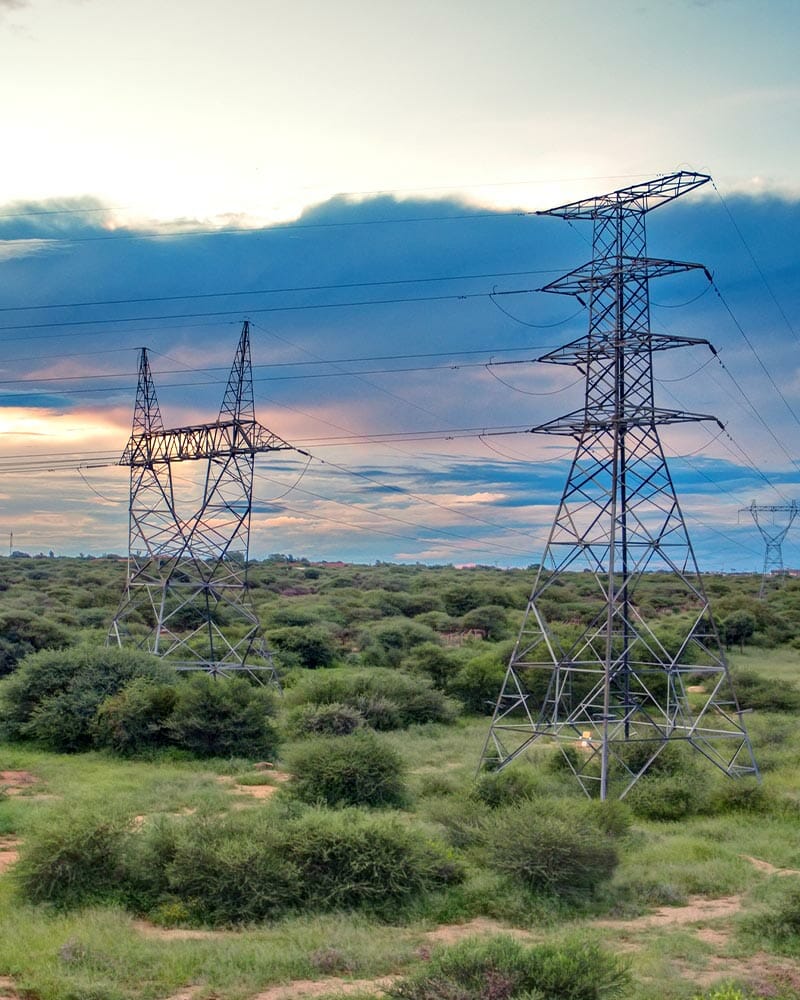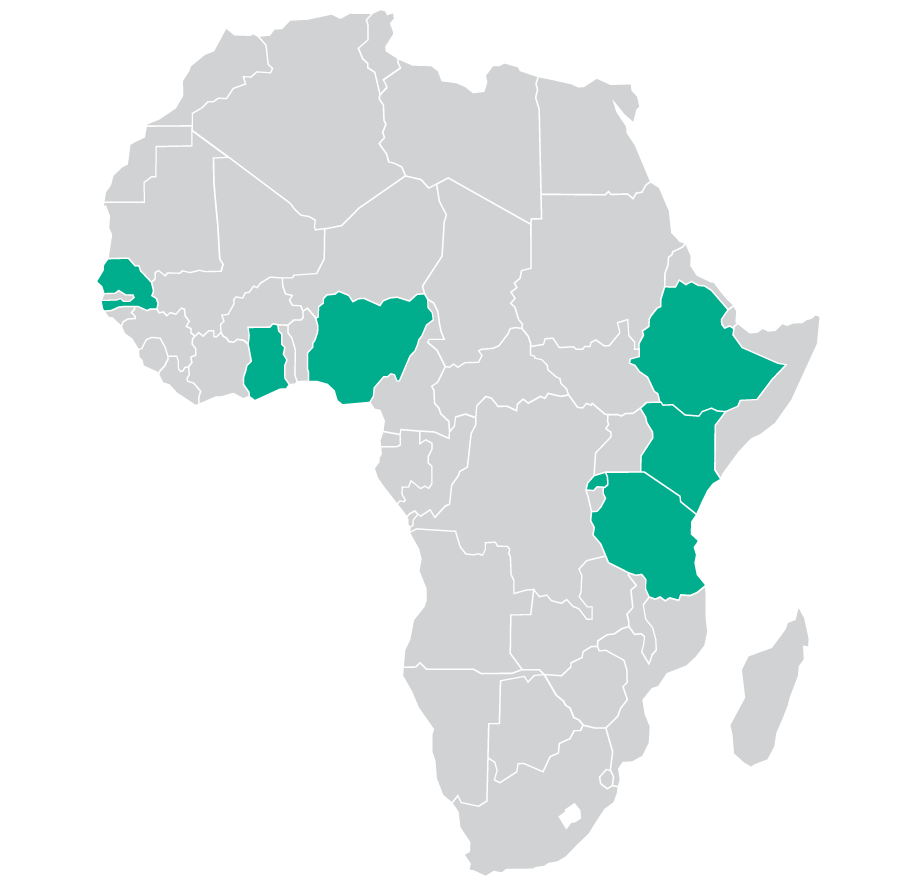Our Work
Energy Access
To address climate change while meeting growing energy demand and alleviating energy poverty, we must expand our definition of energy access and transform our approach to powering the global economy.
At CATF, we look at energy access differently. With an eye toward equity and justice, we focus on expanding access to reliable, affordable energy to the millions of people who don’t currently have it, while reconciling that expansion with the urgent need to decarbonize our global energy system. To meet this challenge, our global team of experts explore emerging technologies, develop new clean energy frameworks, and collaborate with a network of African partners to advocate for policies that meet the energy demands of Africa’s growing economies while aligning these needs with global decarbonization goals.

Our Focus
Expanding energy access and catalyzing technology innovation in sub-Saharan Africa
CATF’s Energy Access work has an initial focus on Africa as part of our Energy and Climate Innovation Program in Africa. This program aims to reorient energy strategies to better support the rapid expansion of modern cost-effective power to improve the lives of Africans, while setting the stage for low-carbon development on the continent as zero-carbon sources become economically feasible for African markets. The Energy and Climate Innovation Program in Africa works with a network of partners on the continent to shape an energy future that meets the needs of a growing continent while protecting our climate.
The latest in energy access
Sign up today to receive the latest content from CATF experts.
Current state & challenges
Why we need innovation and new thinking
The Problem
In Africa, the lack of access to abundant, affordable, and reliable energy limits economic development and perpetuates poverty. The continent will soon be the most populous in the world, with a teeming urban population. Africa will need access to abundant electricity and other modern energy sources to meet growing demand and build prosperous economies. However, the threat of climate change makes it impossible for the continent to meet these growing needs by burning fossil fuels indefinitely. The time is now to re-envision our strategies and address the urgent need to reconcile Africa’s economic growth and poverty alleviation priorities with the imperative to decarbonize the global energy system.
Current efforts have failed to deliver impact at scale because they have focused on a limited subset of technological solutions and have failed to adequately recognize Africa’s need for energy systems that can support meaningful economic growth. Today, energy access and decarbonization approaches wrongly define the scope of the issue and/or focus on addressing parts of the issue rather than the whole. Persistent energy poverty, underdevelopment, and climate change are key areas that need to be addressed.
Misconceptions
Some of the most popular mischaracterizations of the problem include the following:
- The definition of energy poverty as a largely rural problem conceals the urban dimension of the challenge. This can exacerbate the energy access gap as Africa becomes more urbanized.
- The mischaracterization of energy poverty as a supply side problem rather than a two-way supply and demand problem downplays the critical importance of demand stimulation and mobilization as a key strategy for expanding energy access.
- Decarbonization debates in sub-Saharan Africa have been technologically exclusive. By limiting decarbonization discussions to the deployment of small scale off-grid systems, Africa is missing out on opportunities to develop its local capacity to deploy other zero-carbon sources, some of which could provide significant baseload power to support the continent’s growing economies and address the access deficit.
- The frequent positioning of sub-Saharan Africa as a consumer of energy technologies rather than an active participant in technological innovation for the energy transition has limited clean energy technology innovation in the region.
Our Efforts
Strategies and key leadership activities
Analyzing energy development and transition pathways for Africa
CATF models development-centric transition pathways for sub-Saharan African countries to guide energy development and climate strategies in those geographies.
Technology innovation
We partner with African institutions of higher learning, research organizations, and the private sector to establish technology innovation hubs in West and East Africa to facilitate the development and commercialization of zero-carbon technologies in Africa.
Strengthening utility markets and stimulating demand
CATF works with utilities in sub-Saharan Africa to adopt innovative strategies for improving utility performance and financial health, integrating regional power grids, and boosting consumption from commercial and industrial consumers to reduce the per unit cost of power.
Thought leadership and policy advocacy
We partner with African institutions to build knowledge and advocate for an inclusive energy access and decarbonization agenda that is tailored to Africa’s development needs and responsive to global climate goals.
Global Impact
Our geographic focus
CATF’s Energy and Climate Innovation Program has an initial focus on sub-Saharan Africa. Our pilot activities will focus on a subset of sub-Saharan African countries in the Eastern and Western Africa Power Pools.
We are currently scoping engagement opportunities in Kenya, Rwanda, Ethiopia, Tanzania, Ghana, Nigeria, and Senegal.


















